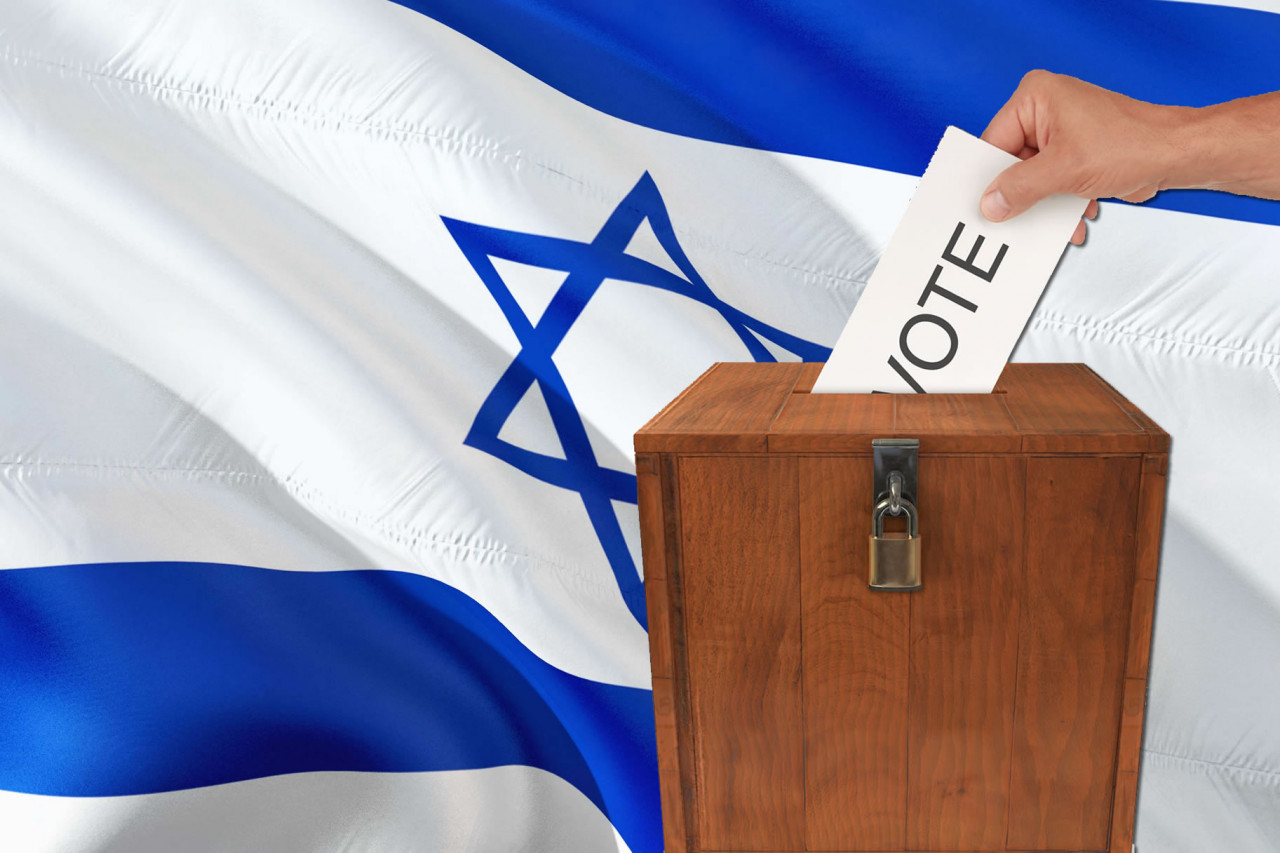Jonathan Feldstein – Undecided Voters in Israel Praying for a Good Outcome
On November 1, Israel will hold its fifth national election in 3.5 years. Polls have vacillated a little but generally continue to show no one clear outcome that’s likely to result in forming a stable government. But the polls are sometimes inaccurate.
More now than ever in the past, I find more people, like myself, who are undecided. The undecided vote may not be represented in the polls, and be bigger than ever before. Out of 9.5 million citizens, a few tens of thousands can swing the election. We’re desperately looking for a good option, or at least, a least bad option. But unlike other countries, Israel doesn’t choose between two main candidates or parties. We have a choice of nearly 40 parties, a third of which are likely to receive enough votes to enter the Knesset.
What’s unique is how Israelis vote. There’s something charming that we actually slip a paper ballot into an envelope, and at the end each ballot is counted by hand. The paper slips have a 1-3 letter representation for each party. When we go to vote, there will be some 40 stacks of paper slips in a cardboard box with dividers and we have to pick the right one. In five elections, that’s a lot of trees that have been chopped down to make the paper slips, plus the time and expense of the election itself.
As a parliamentary democracy, Israelis vote for a party not a person. Usually, but not always, the person at the head of the party with the most votes and seats in the Knesset is tasked with forming a government and becoming PM. That depends on the President assessing who has the most realistic chance to form a government. In the event that that person picked first cannot form a government, the task is given to someone else. Following Israel’s last election, we had the unusual situation where Naftali Bennet who headed a party that received only seven seats found himself in a position to become Prime Minister.
The Knesset is Israel’s parliament. It has 120 seats. After the votes are counted, the seats are divided proportionally among the parties that receive at least 3.25% of the vote, meaning that there is a threshold beneath which those who don’t pass do not sit in the Knesset. In some instances, votes for parties that do not pass are considered wasted because they are not counted in the allocation of seats, and because they reduce the possibility of one or another bigger party being able to form a coalition with other ideologically inclined parties.
The simplest part of all this is that in order to form a government, one needs at least a simple majority of the total members in Knesset to support that government, a coalition under a particular person as Prime Minister, the division of government ministries, cabinet positions, and even diplomatic appointments. That takes lots of negotiation to get at least 61 out of 120 seats in the Knesset to be able to form a government. Never in Israel’s history have there been back-to-back elections like this where the outcome of one is more or less the same as the outcome of the next. Never in Israel’s history has there been one party that won enough votes to establish a government on its own. When we speak of a coalition, we are speaking about several parties agreeing to cooperate and govern together. In the last government we had eight parties ranging from right to left and including an Arab Islamist party (so much for allegations of apartheid in Israel).
For many reasons, the upcoming election is a referendum on former (and longest serving) Prime Minister Benjamin Netanyahu. He is loved and believed to be most qualified by many, but loathed and considered divisive by many others. That he’s on trial for three serious criminal offenses that, if found guilty, would make him ineligible to serve, doesn’t help. When Israelis vote, it’s more than just a choice between A or B. We factor in who might get enough votes to be tapped to form a government, who might join and empower a coalition led by one person and party over another, and who won’t, which parties we like are polling beneath the threshold and whether voting for them will be wasted, or by not voting for them will be a self-fulfilling prophesy.
That’s why this election, the fifth in 3.5 years with polls showing more or less the same outcome as the previous four, puts Israelis across the political spectrum in a dilemma of being undecided, and possibly the swing vote that’s been under the radar.









